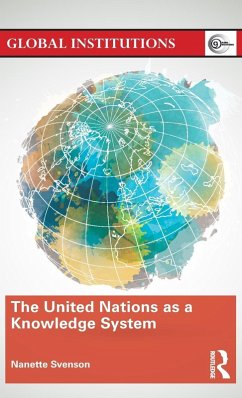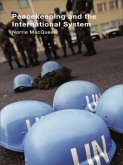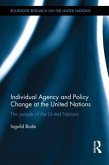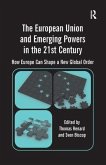This book discusses the evolution of the United Nations (UN) as a knowledge organization. This book seeks to explore how the UN has generated, warehoused, disseminated, structured, packaged, expanded, transferred and leveraged its vast resources of accumulated information and experience throughout the decades and, particularly, since the start of the 21st century with the introduction of more connective information and communications technology. The book examines the overarching objectives that have guided such activity and divides UN knowledge management into three distinct, but often overlapping and intertwining, categories: knowledge for social and organizational learning; knowledge for norm setting; knowledge for creation of products and services. Svenson brings together these multiple aspects of UN knowledge management together to present a holistic view of how the organization utilizes its global intelligence to educate, advocate and serve member countries' development. Instead of looking at the UN as an international bureaucracy or as a peacekeeping, policymaking, humanitarian or development entity, this work studies the UN as a generator and purveyor of information, learning and experience in all of these areas. It illustrates how this knowledge facet may represent the UN's greatest asset and the area in which it has the clearest competitive advantage. It has already shaped much of UN activity and decision-making over the past decades and may ultimately define the organization's role for the future, as well as its collective contribution to global peace and development. This work will be key reading for all students and scholars of international organizations.
Hinweis: Dieser Artikel kann nur an eine deutsche Lieferadresse ausgeliefert werden.
Hinweis: Dieser Artikel kann nur an eine deutsche Lieferadresse ausgeliefert werden.








